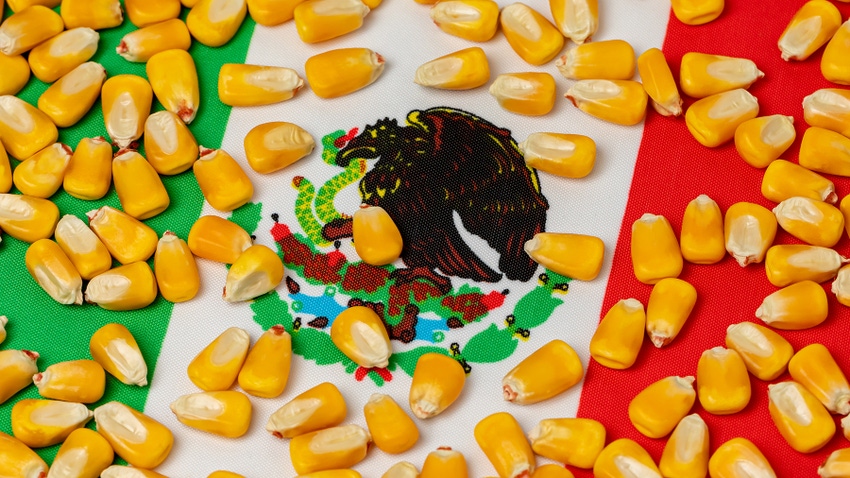
The long-running dispute over United States genetically modified corn exports to Mexico will likely be resolved this year. That’s according to U.S. Chief Agricultural Negotiator Doug McKalip, who touched on the issue during an address at the National Association of State Departments of Agriculture winter policy conference in Washington.
In 2020, Mexican President Andrés Manuel López Obrador announced plans to ban the import of genetically modified corn for human consumption. American officials contend this violates the United States-Canada-Mexico trade agreement.
After years of failed negotiations, the U.S. called for a dispute resolution panel last August under the terms of the USMCA. That panel will be tasked with hearing arguments from both sides before making a ruling.
McKalip says panelists have been chosen and a chair is now in place. Arguments are scheduled to take place later this year. He says that timeline means the case should be resolved in 2024.
According to McKalip, the case is important because Mexico has adopted a decree that is not in line with science. He says government regulators should be expected to perform risk assessments, and base import and export decisions on the work of scientists.
“This USMCA case is about a lot more than just biotech corn,” McKalip says. “It’s about making sure that nations adhere to the provisions of the trade agreements that they’ve already signed. And it’s all about making sure that we stick to science as the underpinning of trade, not allow countries to run political processes or to pick and choose winners and losers out of the agricultural commodities that are traded back and forth.”
Making progress in Asia and Africa
During his address, McKalip also touted progress in trade negotiations with Asian and African countries. It’s part of the Biden administration’s overarching strategy to expand into new markets and ensure trade opportunities for all commodity types.
Negotiations with India last year led to that nation reducing or dropping retaliatory tariffs on more than a dozen commodities. They include industrial ethanol, apples, turkey, duck, blueberries, cranberries, peas, lentils, almonds and walnuts.
“There’s a lot more work to do with India,” McKalip says. “We will certainly keep a very tight dialogue going on with India on a variety of agricultural commodities.”
U.S. officials have made progress in Jordan, which dropped tariffs on fertilized eggs. Nigeria dropped a currency exchange ban that impacted 43 U.S agricultural commodities. American officials are also in deep negotiations with Kenya on an agricultural agreement.
In November, McKalip traveled to South Africa to work on reauthorizing the AGOA trade agreement set to expire next year. The USA-Africa trade program is the main trade agreement between the U.S. and more than 30 African nations.
“I hosted a breakout session specifically targeted toward agricultural products, and we had really excellent turnout and very deep interest on the part of many African countries on how they can deepen their trade relationship with us on farm products, and ultimately get more U.S- grown products into those fast-growing African markets,” he said.
Going back to Asia, McKalip noted Bangladesh has removed fumigation requirements for cotton. The U.S. had long considered this to be an unjustified barrier to trade without any scientific basis.
Japan recently allowed the U. S. to capture up to 100% of its ethanol market. McKalip called this a “really big win” that could potentially lead to around 80 million gallons of biofuel coming to that country. That news came not long after Japan revised its beef tariff to allow more U.S. products into the market.
McKalip also noted that China is still importing a record amount of American goods despite severe economic woes. He and U.S. Agriculture Secretary Tom Vilsack have both had meetings with Chinese Minister of Agriculture and Rural Affairs Tang Renjian this year. They stressed the need for longer term and more permanent transparency that ensures there are no trade disruptions between the two nations.
Read more about:
MexicoAbout the Author(s)
You May Also Like






